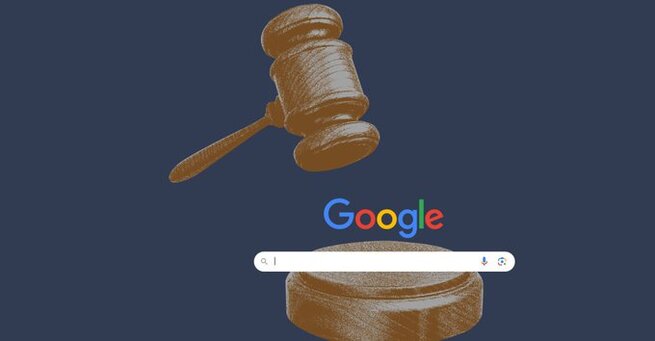
Will the DOJ’s Google changes affect user privacy? That’s the question on everyone’s mind following the Justice Department’s latest proposal targeting Google Search. The DOJ’s plan would force Google to share its closely guarded search data and ranking algorithms with competitors. According to Elizabeth Reid, Google’s head of search, this move could "deeply undermine user trust," raising serious concerns about search privacy, cybersecurity risks, and the future of search engine innovation.
During her testimony on Tuesday, Reid emphasized that the DOJ’s proposal to syndicate Google’s search signals to competitors poses a major security threat. She argued that handing over valuable search data to smaller, potentially less secure rivals could leave user queries vulnerable to hacking attempts. "Once it’s turned over to a qualified competitor, there’s no further protections we can give," Reid warned. Search data—often containing sensitive and personal information—could become a prime target for cybercriminals, placing consumers at greater risk.
Not only could this compromise user privacy, but Reid also suggested it might erode the fundamental trust that millions have built with Google over the years. If users fear their search habits aren't safe, they may rethink how—and where—they search online.
The Justice Department maintains that its proposals are necessary to break Google’s search monopoly and restore fair competition. By forcing Google to share its data and potentially even sell its Chrome browser, the DOJ believes it can create a more level playing field for emerging search engines.
Google, however, is pushing back hard. Company executives, including CEO Sundar Pichai, have testified that the DOJ’s sweeping changes could drastically disrupt the entire web ecosystem, stifling future technological innovation and putting search engine security at risk. They argue that less extreme measures—such as adjusting distribution agreements—would better serve consumers without jeopardizing online safety.
One of the most alarming concerns raised during Reid’s testimony centers around cybersecurity. If startups and smaller search competitors gain access to Google’s highly sensitive search data, they could inadvertently become attractive targets for sophisticated hackers.
As Reid explained, "A startup is generally not a target because it’s small, but now it has this huge treasure trove of data." This risk isn’t just theoretical—history shows that less secure companies often become entry points for major data breaches. By pushing for forced data sharing, the DOJ might inadvertently weaken consumer protection across the entire internet.
If users lose confidence in how their data is handled, the consequences could extend far beyond Google. Reid warned that the uncertainty created by the DOJ’s plan might cause people to stop using Google altogether—or even to avoid searching sensitive topics online.
Consumer behavior could shift dramatically, impacting everything from advertising revenue to online commerce. As Google has built much of its ecosystem around user trust, losing that trust could send shockwaves throughout the digital economy.
Google has already indicated plans to appeal the monopoly ruling, though it cannot proceed until Judge Amit Mehta issues a final remedies decision. In the meantime, the company continues to argue for limited, less disruptive changes rather than the extreme restructuring proposed by the government.
Meanwhile, the DOJ remains firm in its belief that only bold action can restore competitive balance in the search market. With both sides digging in, the fight over search engine dominance, consumer trust, and data privacy shows no signs of slowing down.
𝗦𝗲𝗺𝗮𝘀𝗼𝗰𝗶𝗮𝗹 𝗶𝘀 𝘄𝗵𝗲𝗿𝗲 𝗿𝗲𝗮𝗹 𝗽𝗲𝗼𝗽𝗹𝗲 𝗰𝗼𝗻𝗻𝗲𝗰𝘁, 𝗴𝗿𝗼𝘄, 𝗮𝗻𝗱 𝗯𝗲𝗹𝗼𝗻𝗴. We’re more than just a social platform — from jobs and blogs to events and daily chats, we bring people and ideas together in one simple, meaningful space.